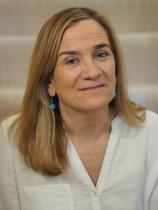Reading Group Guide
Discussion Questions
The Glassmaker

1. Time flows differently in THE GLASSMAKER’s Venice. Characters skip across centuries while aging only a few years at a time. They live through several eras and major historical events, including a plague, two world wars and a global pandemic. Why do you think the author chose to tell the story of Orsola and the Rosso family in this way? What did you think of this decision?
2. Early on in the novel, Maria Barovier tells Orsola, “Beads fill the spaces between things.... They are inconsequential, and women can make them because of that.” Did you agree with the reasoning behind Maria’s statement? Consider the shifting roles of women and beadmaking in the Rosso family business over time. At what point did you feel that Orsola’s beads became “consequential”?
3. Marco, Orsola’s stubborn and hot-headed eldest brother, ridicules her plan to help support their family by selling beads. Nevertheless, Orsola forges her own relationships with the family’s business partners and manages to sell her beads independently from their other glassware. What barriers did Orsola have to overcome --- within her family, her line of work and society at large --- to successfully advocate for herself as a businesswoman? Do women today face similar challenges in vying for their work to be taken seriously?
4. Poor business decisions and a tough economic climate drive the Rossos to the brink of financial ruin. What tensions among the members of the Rosso family emerge during this time? On the other hand, how do they draw strength from one another? Why do you think familial bonds can endure even in the face of situations that threaten to tear them apart?
5. The Muranese are fiercely loyal to their island, and Orsola herself displays a clear disdain of terraferma --- the world beyond her beloved Murano. How does Orsola’s love for Antonio clash with her love for her home? If you were in her situation --- torn between following the man whom she loves or remaining with her family and the place where she had grown up --- which would you have picked?
6. Long after Antonio has parted ways with Orsola, she continues to collect the glass dolphins that are sent her way. Do you think that it was acceptable for her to do so? Do you feel that this impacted Orsola’s commitment to her husband and daughter?
7. THE GLASSMAKER traces Orsola’s life from girlhood into adolescence, motherhood, and beyond. How do her responsibilities to her family and her work expand as she ages? Do you believe the demands placed upon her are reasonable? How do the roles that the Rosso women are expected to fulfill compare to those expected of women today?
8. Orsola finds a steady companion in Domenego, the African gondolier who serves Gottfried Klingenberg, her family’s longtime trade partner. What do you think was the significance of including his character in Orsola’s story? What did he reveal about the world of THE GLASSMAKER that the Rosso family could not?
9. Marco, Giacomo, Antonio and Stefano --- some of the most important men to Orsola and to the Rosso family business --- have vastly different demeanors and ways of navigating life. Each of them, however, must contend with the pressure of leading in the absence of a maestro and the societal expectations that come with being men in business. How do each of these men uphold or subvert the standards of masculinity imposed upon them?
10. The story is told in close third person, looking over Orsola’s shoulder. There is a big emphasis on her relationships with people: family, friends, the community, business. Which do you feel is the most important relationship in the book and why? Put another way, which scene is the climax and resolution of the story: Stefano’s funeral, Domenego leaving, the revelation of the makers of the glass dolphins? Or something else?
11. Over the course of the novel, Venice declines from a booming hub of commerce to a tourist attraction overrun by novelty shops. Along the way, the Rossos reluctantly adapt to cut costs, such as when they pivot to making smaller and cheaper seed beads. Do you think that artistry and profit are inherently at odds with each other? To what extent do you feel it is acceptable to compromise quality for financial gain?
12. Orsola sees generations of Rossos pass away, move out of Murano, and abandon the family craft. She laments, “The Rosso family is falling apart,” to which Stella replies, “No, it’s not, it’s just changing.” With whose outlook do you feel more aligned? What do you think is the distinction between a family simply changing as opposed to falling apart?
13. THE GLASSMAKER ends in the present day, in a world recovering from the COVID-19 pandemic. After traveling through time with the Rossos, how did it feel to see them navigate the pandemic, particularly compared to the plague of 1575? Did the Rossos’ experiences resonate with your own?
The Glassmaker
- Publication Date: June 17, 2025
- Genres: Fiction, Historical Fiction, Women's Fiction
- Paperback: 416 pages
- Publisher: Penguin Books
- ISBN-10: 0525558292
- ISBN-13: 9780525558293







